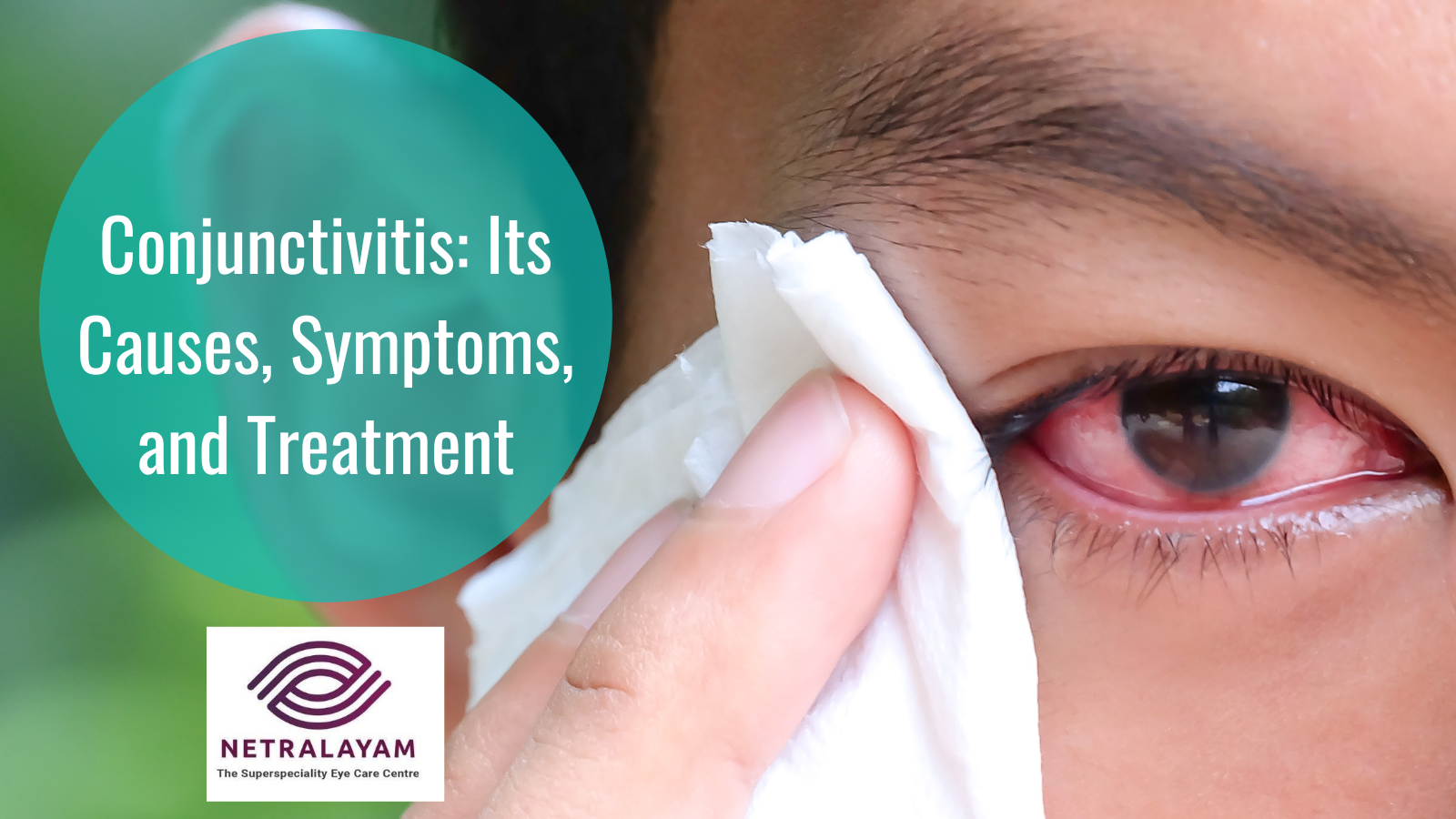Committed to Eye Care with Compassion, Technology and Competency
Committed to Eye Care with Compassion, Technology and Competency

8/10/2022
Conjunctivitis, referred to as “pink eye,” is the swelling or inflammation of the conjunctiva, the thin, transparent layer of tissue in the eye. Conjunctivitis makes the affected eyes turn red.
There are various forms of conjunctivitis. Therefore, the conjunctivitis symptoms also vary depending upon the nature, and since there are various forms, the conjunctivitis treatment also changes. Usually, conjunctivitis is a common infection in people of all ages. But it is advisable to visit the eye care hospital before it takes a serious turn.
The most common causes behind conjunctivitis include:
Most cases of viral conjunctivitis are caused by viruses such as adenovirus, herpes simplex virus, varicella-zoster virus, and others. Viral conjunctivitis causes sore throat, common cold, or respiratory infection.
Bacterial conjunctivitis is an infection of the eye's conjunctiva, which extends from the back of the eyelids into the fornices and onto the bulbar conjunctiva until it fuses with the cornea at the limbus. Bacterial conjunctivitis causes redness, discharging, irritation, blurry vision, and light sensitivity.
Allergic conjunctivitis affects both eyes and responds to allergy-causing substance pollen. In allergic conjunctivitis, a person may experience intense itching, tearing, and inflammation of the eyes — as well as sneezing and watery nasal discharge.
It is difficult to define the cause of conjunctivitis because some symptoms may appear similar irrespective of the cause.
Normally, conjunctivitis symptoms include redness or pinkish eyes. However, in the case of bacterial conjunctivitis, there will often be yellow or green discharge from the eyes, making the eyelids stick together.
The discharge is likely visible if it’s viral or allergic conjunctivitis. A person may also experience hay fever and symptoms like an itchy nose and sneezing.
Along with this, other conjunctivitis symptoms involve,
Following a holistically healthy lifestyle is important to prevent or control the spread of conjunctivitis. For instance,
Remember that pink eye or conjunctivitis is as infectious as common cold. It's normal to return to work. Following and practicing good hygiene can control the spread of conjunctivitis.
Conjunctivitis treatment is usually focused on relieving the symptoms. Doctors usually recommend cleaning eyelids with a wet cloth and applying cold or warm compresses several times a day.
If a person wears contact lenses, it is advised to stop wearing them until complete treatment is done. Doctors recommend throwing out worn contacts if the lenses are disposable.
Disinfect hard lenses overnight before reusing them. Consult the doctor if discarding and replacing the contact lens accessories, such as the lens case used before or during the infection. Also, avoid using any sort of eye cosmetics during the phase of infection.
Conjunctivitis is a common eye infection. There are several causes of conjunctivitis, and as a result, the treatment also varies. However, the infection can go from the most common to the most serious. If the problem increases, it is advisable to consult the doctor or eye care specialists for treatment.
Are you suffering from conjunctivitis and looking for the best eye hospital for emergency treatment? If yes, then Netralayam Eye Care Center is your best bet. We are one of the best emergency eye hospitals in Kolkata. Contact us to fix an appointment.
Comments are closed
